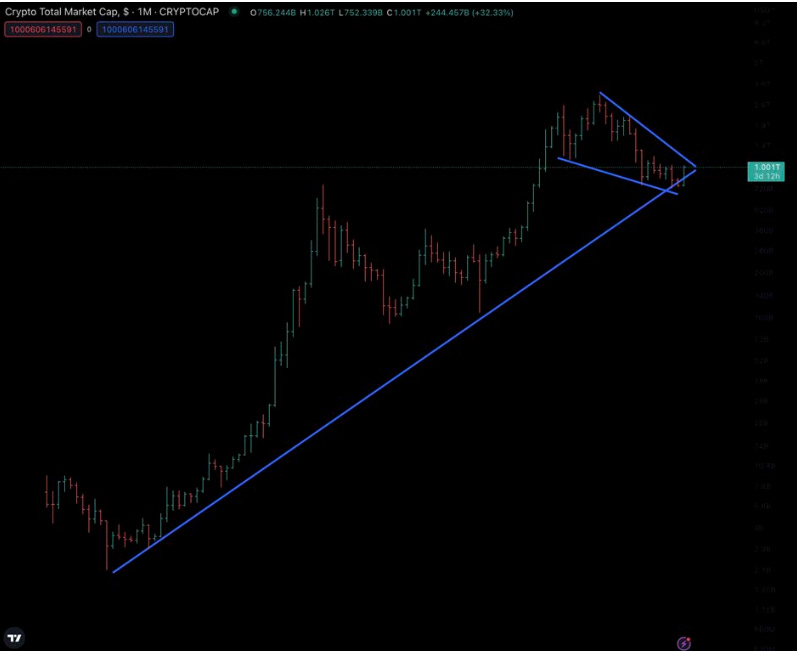The crypto ecosystem is noisy. Between the jargon, different coins, tokens, protocols, smart contracts, etc., etc., it’s easy to understand how someone can get lost or even lose interest. And, if you’ve ever ventured into the horror show that is crypto Twitter, you know what I am talking about.
That’s why I want to offer you a new framework for thinking about the crypto ecosystem. Let’s set aside all the terminology and think about this from a macro perspective.
The crypto market boils down to a series of networks. As you’ve probably heard me say before, these networks are actually closer to digital nation-states than they are to traditional technology. Why? It’s simple – networks produce intrinsic and extrinsic value. Think about Bitcoin or Ethereum: what lies at the center of these ecosystems? Money and value.
I want you to think about the Bitcoins and Ethereum of the world not as assets, but as economies. Once you do this, everything will become clearer, and the space becomes far easier to navigate.
So, let’s get started.
The Bitcoin economy is founded on one basic narrative: governments have destroyed the value of our currencies and Bitcoin is the hard, independent money that will finally free us all. It is fiercely protective of the integrity of its protocol (how its society functions) and as a result, shuns innovation in the name of purity. Think of the Bitcoin economy as the catholic church back in the dark ages or the gold bug community. There can only be one God or one asset. In the case of the Bitcoin economy, the only asset that exists is Bitcoin. So, if you wish to allocate capital to this economy, your only choice is to HODL Bitcoin.
Now, let’s have a look at the Ethereum economy. By the end of this piece, you will understand why ETH is likely to become much larger than the Bitcoin economy over the long term.
The Ethereum economy is in many ways similar to the US economy. In this system, you can start out by buying ETH which has a deflationary supply, meaning there will be less of it as time goes by. Because of this, its “central bank” (the staking) adheres to a responsible monetary policy designed to ensure that value is upheld and not debased.
That alone is a pretty good reason to own ETH but there is more…
There’s yield to be had. In the same way that you can purchase a Treasury bond in the US and in exchange receive a “risk-free” yield, you can also do the same in the Ethereum economy. At the moment, you can get 5% real yield from the “central bank.” Staking ETH to get it gives the soundness of ETH (deflationary supply) plus the yield pick-up.
Now, you may be thinking to yourself, ok, that’s pretty attractive, but maybe you’re more like me and are not really interested in staking. Well, in that case, just like in traditional markets, you can seek out higher yield by going further out on the risk curve. Where can this be done? In private sector lending: DeFi.
So, to review – you now have a sound currency, a government bond market, and a corporate bond market or banking sector.
It’s all becoming clearer now, isn’t it? Let’s continue…
Maybe you just flat out don’t care about yield and instead are looking for capital gains. The ETH economy here also works a lot like the US economy.
Let me explain…
Back in 2012, after examining the future of global economies, I concluded that the US was the most likely to generate the best opportunities. So, I took all my savings and the billing of GMI from euros and put them into dollars at around $1.48.
I also wanted to get enhanced returns on my dollar position over the long-term and hedge against inflation, so I decided to buy property in Miami and Cayman.
Since then, the dollar has gone up 26.5%. My properties have risen by let’s say, 40% (I have no idea but just for ease of numbers). All in all, my allocation to dollars has now generated a 66.5% return. Pretty damn good.
I could have also gone into the art market which historically has done better than property and would have been a play on my dollar position since the global art market is priced in USD. If I wanted to take on more risk, I could have also invested in equities too.
The reason I’m telling you this is because, in the ETH economy, you can do the same thing. For example, property/art exists in the form of NFTs. They are priced in ETH and over time as ETH goes up in value, the NFTs (assuming you get it right, as with any investment) will rise not only in line with the currency but can outperform due to scarcity or utility.
This is why I often say that I think of my NFTs as call options on my ETH position.
It doesn’t end there though. The ETH economy is growing. Once you own the currency, a whole new world of opportunities opens up. Meet the pseudo equity layer, here you’ll find things like dApps, DAOs, social tokens, and Layer 2s that will further leverage the ETH economy. It is my view that many of these will do extremely well over the long term and will outperform ETH, much like Microsoft (NASDAQ:MSFT) has outperformed the USD. Now, that’s not to say that ALL of them will do well, just as many equities have not done well.
As is the case with any investment, whether in the crypto economy or the real ones, you must put in the work to find the best opportunities. Naturally, if you get it right, the payoff can be huge. Conversely, if you get it wrong and don’t diversify enough, you can lose it all. It’s a brutal free market economy!
It’s still early for the ETH economy, and that is why it offers so many amazing opportunities. This is the fastest-growing economy on earth, and it comes with a sound central bank in a completely free market where capital is allocated and utilized rapidly (and destroyed rapidly too!).
Unlike the Bitcoin economy, the Ethereum economy is broad and deep and is practically a mirror of traditional economies. With the added bonus that it’s been reinvented for the future.
Other protocols can be thought of as emerging markets or simply smaller economy markets.
For example, you could think of XRP as the UK: an old economy that, while important and well established, does not grow very fast because of a lack of innovation.
Solana on the other hand might be South Korea just after the Asian crisis when its currency and equity market came crashing down. It was an unmatched opportunity that outperformed both the USD and S&P 500 for six years. However, it did not stand the test of time. It failed to continue the outperformance. Who knows how Solana will play out.
Many new participants will show up to stake their claim in the new world of crypto and – just as in the real world – some will flourish while others will be nothing more than a flash in the pan.
I hope this new framework helps you to better understand and navigate what I continue to believe is a once-in-a-lifetime opportunity.
If you take the time to put in the work, the rewards can be life-changing.
I’ll leave you all with this chart of the total crypto market cap – a perfect setup.

